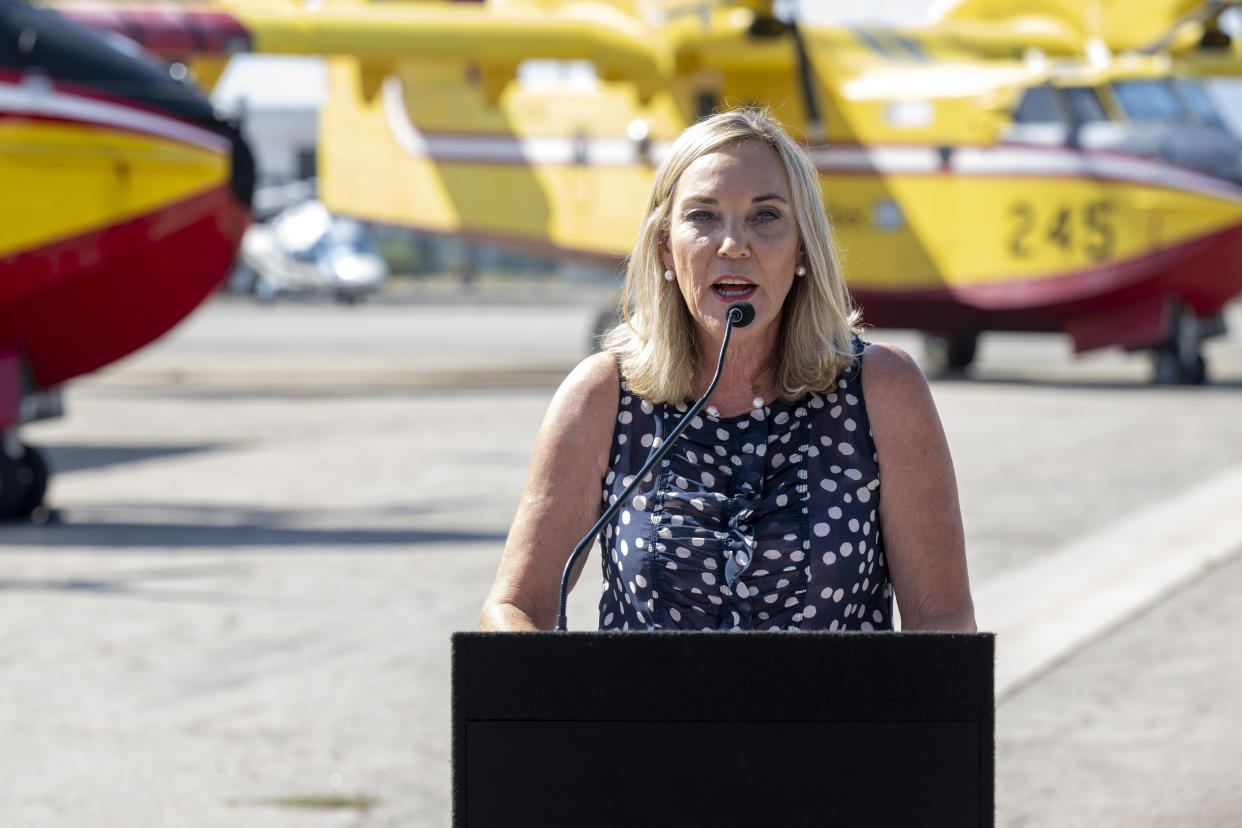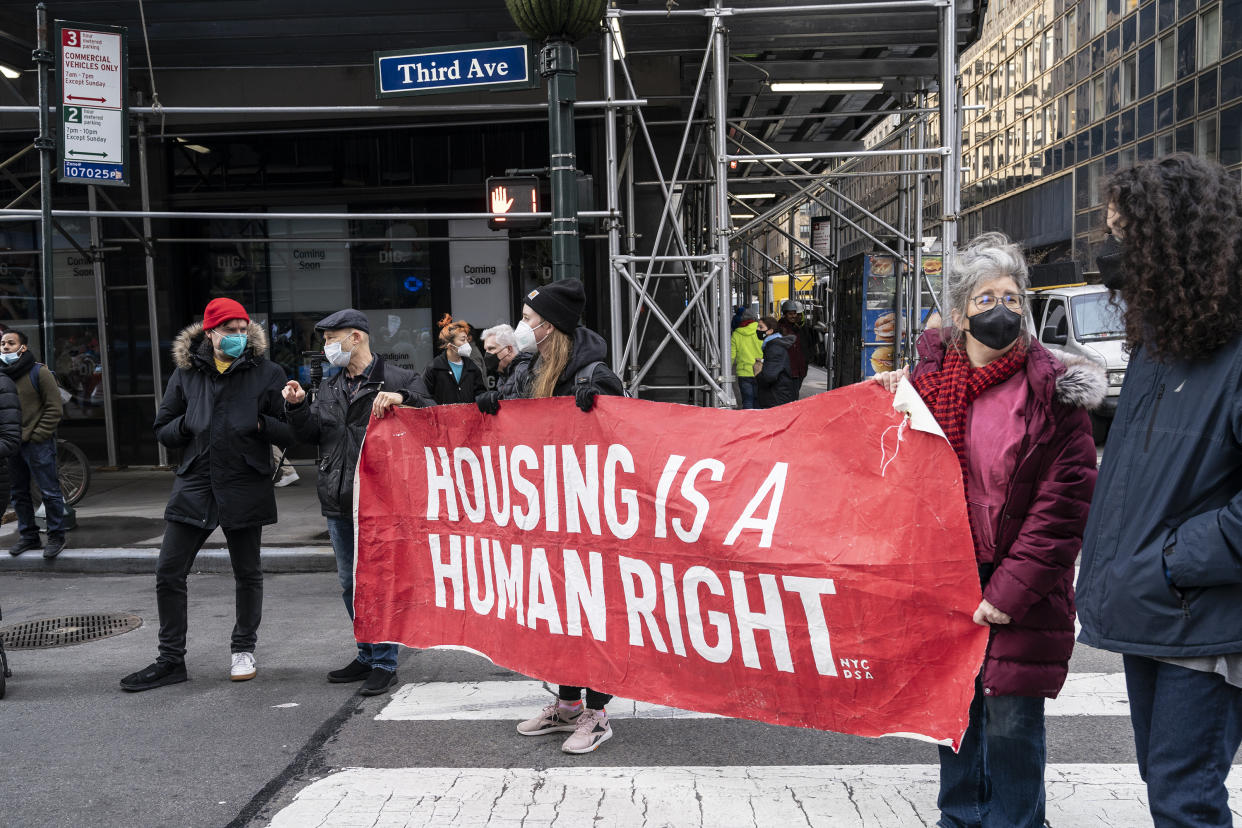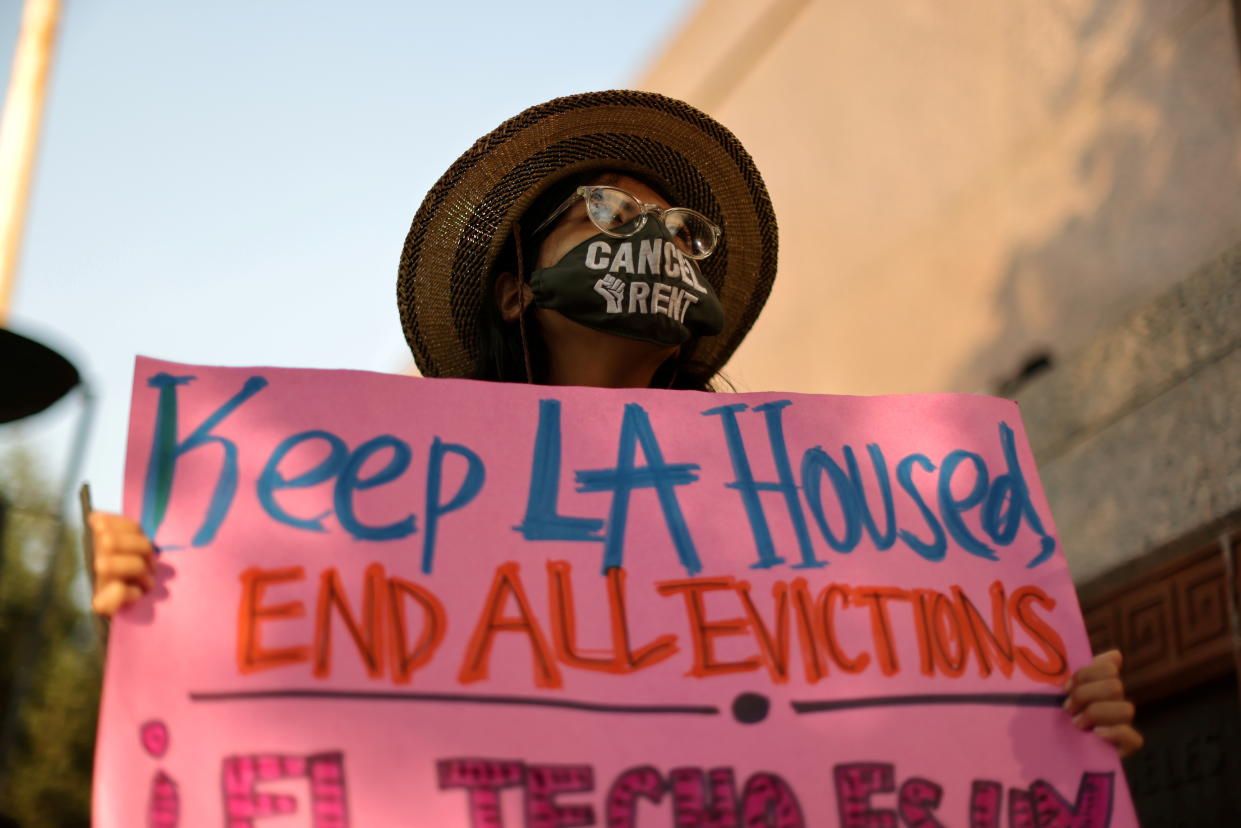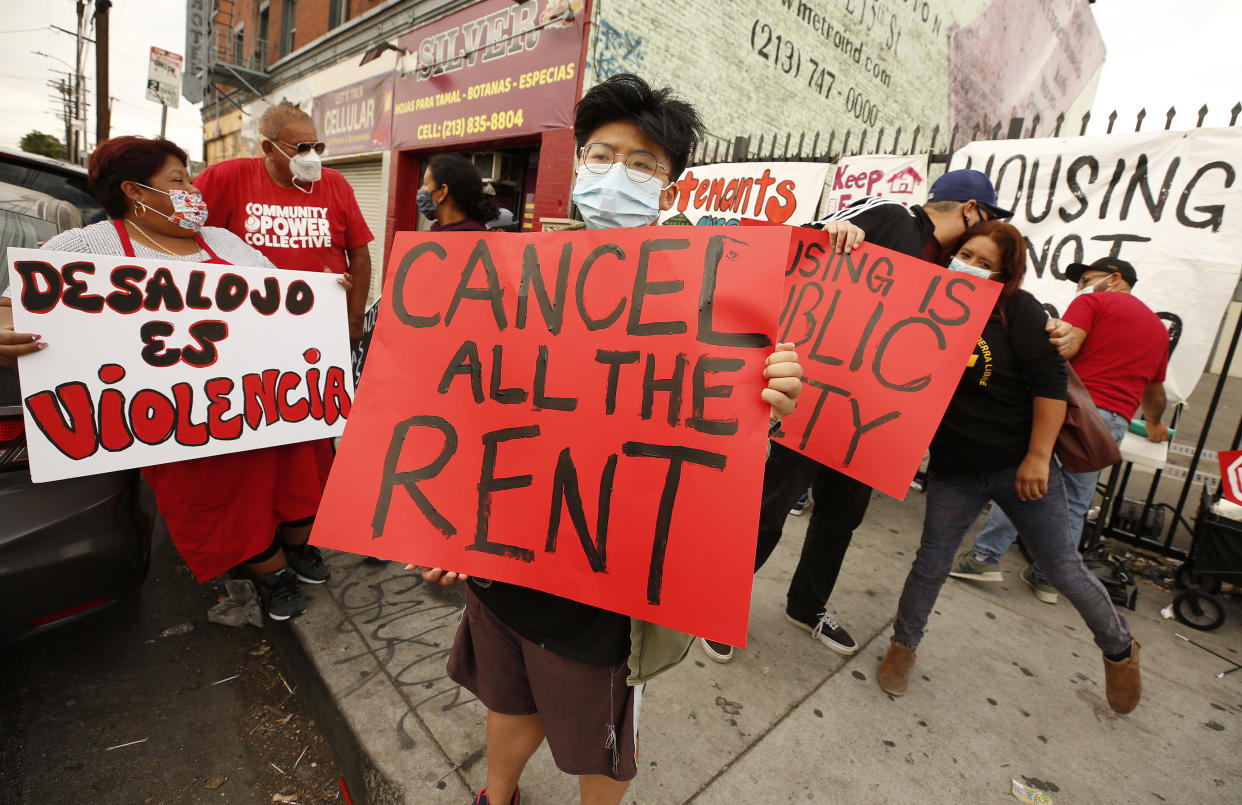L.A. County’s eviction moratorium will expire, so what happens next?
Los Angeles County, whose 10 million people are spread across 88 different cities, will unwind special renter protections created in response to the hardships of the COVID-19 pandemic, which some believe may add to the region’s homelessness crisis.
The L.A. County Board of Supervisors decided in a 3-to-2 vote Tuesday to begin an outreach campaign warning renters and landlords that the eviction moratorium will end officially on Dec. 31. The Tuesday vote did noit create the deadline, which was already in place and apparently won’t be extended, but will focus on making sure that renters are aware of the resources and financial assistance that will remain available.
"We must be proactive and perform robust outreach and communication to those that are going to be impacted," Supervisor Kathryn Barger, who introduced the motion, said at the hearing. "This provides a plan to prepare both the tenants as well as the landlords."

California ended a two-year statewide eviction moratorium on June 30, despite protests from tenant advocates that it should continue. They argued that the state hadn’t done enough for renters in need of help. In L.A., the nation’s most populated county, however, the help will remain through the end of 2022, after the Board of Supervisors extended it in January.
“Renters should communicate with their landlords and vice versa. Keep an open dialogue. Be open, honest and truthful. Make a payment plan for any past-due rent,” David Piotrowski, of the Law Office of David Piotrowski in L.A. County, who represents landlords, told Yahoo News in an email.
The two dissenting supervisors, Sheila Kuehl and Hilda Solis, opposed the motion to create an outreach campaign, calling it premature and suggesting that the board consider the option of extending some renter protections. "I intend to do everything I can to continue to protect them,'' Kuehl said.
“Most parts of the economy and society are open with little to no restrictions, yet landlords are still being burdened by ongoing tenant protections. These restrictions that were put in place in early 2020 need to end now,” Piotrowski said.

A national moratorium on evictions was signed into law by then-President Donald Trump in March 2020 as part of the Coronavirus Aid, Relief, and Economic Security (CARES) Act to subsidize economic damage caused by the virus.
Once that federal safeguard sunset in July of that year, the Centers for Disease Control and Prevention stepped in and issued an order temporarily halting residential evictions.
The CDC continued to extend it until June 2021, and Congress pushed it to July of last year, but it was then left up to the states to decide, after the agency was successfully sued by the Alabama and Georgia Associations of Realtors. The case went to the U.S. Supreme Court, which ruled last July that “clear and specific congressional authorization (via new legislation) would be necessary for the CDC to extend the moratorium past July 31,” affecting millions of Americans.
Many are still unhappy with that decision. Earlier this week, hundreds of protesters gathered at the fall conference for the National Multifamily Housing Council — an organization made up of apartment owners, managers, developers and lenders — in Washington, D.C. They called for "lawmakers stop opposing tenant protections at the behest of real estate groups and developers," according to Business Insider.
Progressive advocacy organizations including Stand Up Nashville, Renters Rising, the Center for Popular Democracy, PowerSwitch Action and the Action Center on Race and the Economy convened at the Intercontinental Hotel at the Wharf to interrupt and protest at the conference.

In New York, the state Assembly let an eviction and foreclosure moratorium expire in January. Tenant advocates protested the decision outside the New York Public Library a day before it ended, hoping for relief for struggling families to continue.
Congressional Democrats including Reps. Hakeem Jeffries, Alexandria Ocasio-Cortez and Kathleen Rice joined the fight, asking New York Gov. Kathy Hochul in a letter to extend the state moratorium: “An extension of the eviction moratorium would allow for the hundreds of thousands of eligible households to apply for [the Emergency Rental Assistance Program] and receive payments to bring them up to date on their rent while keeping them in their homes,” the letter read, in part.
The L.A. County vote from Tuesday will not apply to the city of Los Angeles, which has its own rules that continue to limit evictions and rent hike protections because of COVID-19.
The city of L.A.’s Housing Department has proposed that, starting next year, landlords will once again be allowed to evict tenants for not paying their rent even if they’ve fallen behind for COVID-19-related circumstances. The plan could also open the door for rent increases.

Landlords have also been outspoken and called for the end of tenant protections. Many of them believe the country has moved past its worse days of the pandemic, with the economy recovering and most of all, the ability to vaccinate against COVID-19. They want the restrictions to finally dwindle with the virus.
“Many landlords have been unable to survive for over two years, with the serious and stringent restrictions preventing landlords from terminating tenancies. Here’s just one example: Many landlords simply want to sell their properties because they cannot afford to be a landlord anymore, but selling the property is not grounds for an eviction under the terms of the Los Angeles City/County restrictions. Thus, landlords are forced to either sell their property as a tenant-occupied property, sometimes with a troublesome tenant or one that has not paid rent in months or longer (thus selling the property at a much less value than they could receive if the property was vacant), or wait until eviction restrictions end and then take action against the tenant,” Piotrowski said.
California’s COVID Rent Relief program has subsidized landlords who lost monthly rent payments during the pandemic. The program has sent more than $2 billion in compensation to landlords in L.A. County. A joint University of Southern California/UCLA study in 2021 found that the median amount that a L.A. County renter owed their landlord was around $2,800. The researchers say that countywide, tenants owe landlords upward of $3 billion. Those numbers could be much higher a year later.

“As of today, L.A. City’s eviction moratorium remains in effect, with little to no changes since early 2020," Piotrowski noted, adding that these protections have barred landlords from proceeding with no-fault eviction. The restrictions, he said, also prohibit at-fault evictions for unauthorized occupants, pets or nuisance related to COVID-19. Tenants also cannot be evicted for nonpayment of rent if the tenant notifies the landlord (without requiring any proof) that the tenant cannot pay rent due to circumstances related to COVID-19.
